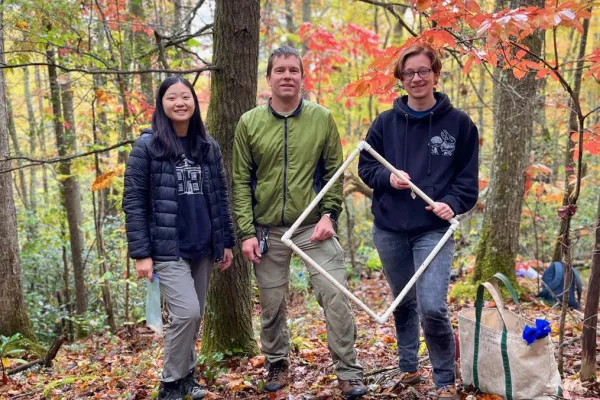Smith Students and Botanic Garden's Role in Newly-Published GCCM Conservation Action Plans
News

Published October 24, 2023
Saving species starts with a plan. We are very excited to share that two conservation action plans, which botanic garden staff and conservation interns co-developed, for U.S. native magnolia species Magnolia ashei and Magnolia fraseri have been published!
These plans will act as living information resources and to guide conservation actions by Global Conservation Consortium for Magnolia (GCCM) participants for these species. Landscape Curator John Berryhill of the Botanic Garden of Smith College, Jean Linsky of Atlanta Botanical Garden, and Todd Rounsaville of USDA Agricultural Resource Service took a leadership role in developing these plans.
“This work has been so exciting for both us and our students because it goes way beyond just going out and collecting seeds of a priority species. It connects us with some of the biggest players in global plant conservation and allows Smith students to think about complicated topics like resource allocation, science communication, ecological impacts, and long term project management,” shared Berryhill.
Developing comprehensive conservation action plans for species of concern is a priority of the GCCM globally. Through a participatory process engaging multiple participants, they will aim to create plans which will act as a guide for activities of the GCCM for specific species. It’s an honor to be a part of this project.